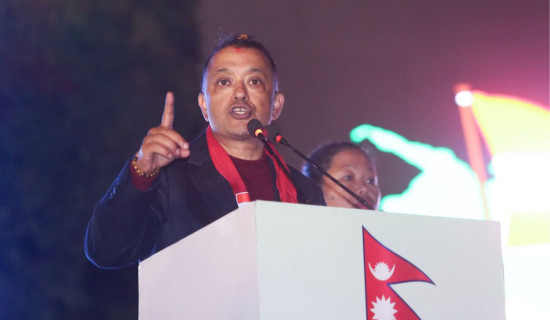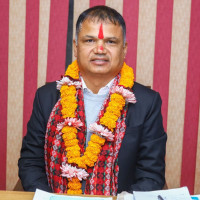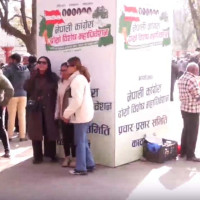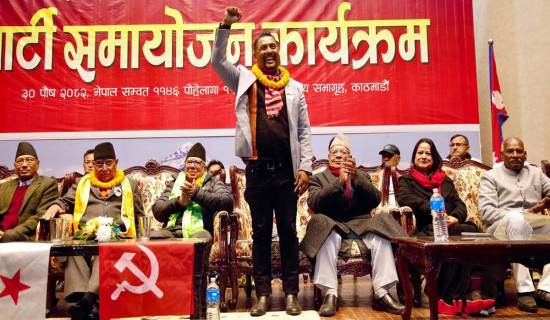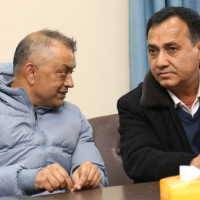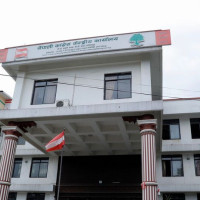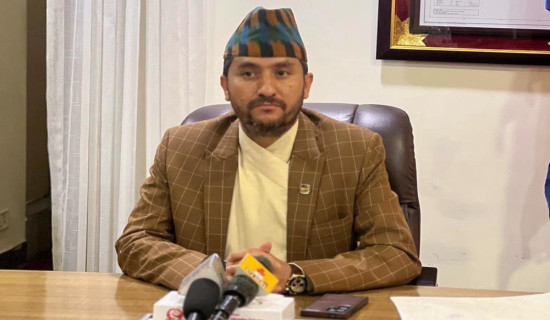- Wednesday, 14 January 2026
Democracy Day
Democracy, Development And Desperation
Democracy Day in Nepal has been observed on Fagun 7, particularly to commemorate the overthrow of the autocratic Rana regime over seven decades ago in 1951 by an armed insurrection coupled with peaceful people’s movements. In the last seven decades, the country has witnessed many political turning points, for instance, the imposition of the party-forbidden Panchyat system in 1961, the people’s movements that reinstated parliamentary democracy in 1990, the onset of the people’s war in 1996 that sought republican set up through the election of a Constituent Assembly to write a new constitution, the people’s movement II initiated by the seven-party alliance and the Maoists in 2006 that succeeded in doing away with monarchy by holding the election to the Constituent Assembly in 2008, and the promulgation of the Constitution by the CA in 20015. Democracy as a political system has seen both setbacks and progress over the decades since the 1950s. The imposition of a party-less Panchayat by the monarchy was a setback, whereas the abolition of monarchy and establishment of a republic was a historic progress for democracy.
With the introduction of democracy in 1951, the awareness that people are entitled to choose their rulers by means of franchise took root and grew with the passage of time in the minds of people of all strata across the country. It was this consciousness that propelled people into taking arms or joining the forces in the urban street to do away with monarchy when they knew monarchy had been an obstacle to the smooth growth and functioning of democracy.
With the constitution promulgated by the CA in 2015, an inclusive, participatory democracy has been institutionalised. The oppressed, marginalised communities have been enjoying political inclusion by means of their proportional representation in the state organs and public employment. Unlike in the past, there are public holidays for celebrating traditional festivals of the indigenous peoples and different religions and regions. A public holiday to mark Lhosar of the Tamang, Gurung or Sherpa, Maghi of the Magar and Tharus, Chrismas of the Christian, or Ramajan/Eid ul-Fitra of the Muslim was unthinkable in the past. It is a reality now. Constitutional provisions make it mandatory that women's representation in lawmaking bodies stand at least at 33 per cent. The people who were marginalised as untouchable, the Dalit, have been granted rights at par with any other so-called upper castes, and as a prerogative, a seat in the ward of local levels has been reserved for Dalit women. For some people with an old, conservative, and extreme religious mindset, this new reality has been tough to bear. Those who fail to grasp that man is born equal or that man is the creator of his or her destiny have grievances over this.
If we compare the scale of Nepal’s physical infrastructure, including road networks, hospitals, schools, electricity, and communication facilities available today, with that in 1951, when democracy was first introduced, or, let’s say, in 2008, when monarchy was abolished, the current status is beyond comparison. There has been unprecedented progress in all spheres of physical infrastructure development. However, if we compare Nepal’s development pace with any other country, we may find Nepal lagging far behind in many respects. The point is that the country has failed to keep up with the pace of time with regard to development. The revolution in communication technology as expressed on the internet and social media has enabled even common people across the world to compare their current situation with that of other countries, especially the developed ones. This exposure has given rise to the sense of having fallen far behind in development.
Additionally, the country has not been able to create new job opportunities. The economic revolution that the leaders vowed to bring about after the political revolution, that is, the establishment of a republic, has not taken place. No new industries that could provide decent jobs to young generations have been set up. With the progress in living standards of the people due to remittance, the country has become much more import-reliant now than in the past. Moreover, service delivery has not been as efficient as desired by the people. This has all made people desperate, as seen in the exodus of people to other, rich or developed, countries for jobs, education, and settlement.
It is noteworthy that the incumbent government led by Prime Minister Pushpa Kamal Dahal ‘Prachanda’ has been striving to make service delivery efficient, curb corruption, and resume the state-run industries made redundant in the recent past. Despite intense efforts on the part of the government, the results are not so promising. There is some progress, but this scale of progress does not seem to be likely to do away with the obstacles left by historical anomalies. No doubt, people have started to become optimistic, but large-scale government initiatives for creating job opportunities are needed to sustain this. People’s optimism is the positive force, whereas desperation is the negative one. Optimistic people can contribute to government and state efforts, while desperate people simply create barriers. There are efforts by the regressive forces to blame the present polity, the democratic republic, for the present plight of the people. Political leaders have been blamed for bribes. If the situation does not improve as expected, common people might start believing what the regressive forces have been claiming, which may eventually bring about another setback in democracy. Therefore, it is the responsibility of all the democratic political forces in the country to come together to consolidate democracy by ushering in development.
(Tiwari is a sub-editor of this daily and the coordinator of its online edition, risingnepaldaily.com.)



